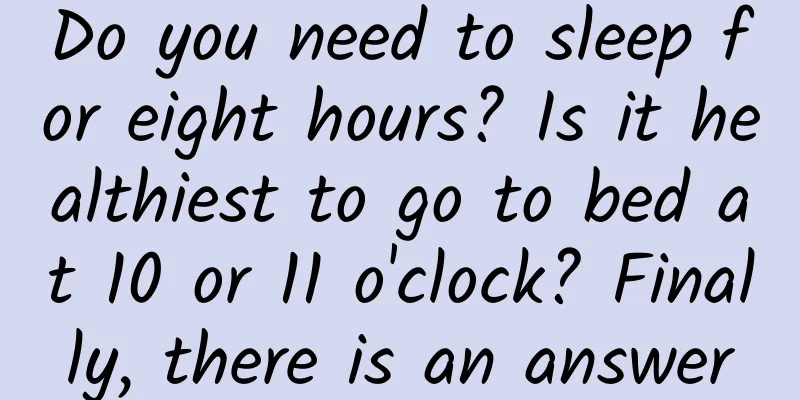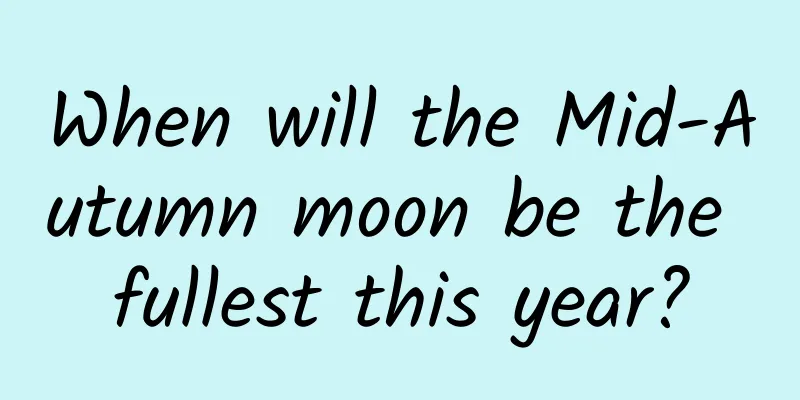Do you need to sleep for eight hours? Is it healthiest to go to bed at 10 or 11 o'clock? Finally, there is an answer

|
Sleep is a repair process for the human body that can restore the spirit and relieve fatigue. About one-third of a person's life is spent sleeping. Good sleep is one of the three health standards recognized by the international community. Too little sleep or poor sleep will affect health. In today's society, staying up late has become the new normal for many young people. Staying up late regularly can cause great harm to the body. It is well known that lack of sleep is associated with an increased risk of cardiovascular disease, depression, diabetes, hypertension and overall mortality. What time is the healthiest to sleep? Researchers from the University of Oxford in the UK published a research paper titled "Accelerometer-derived sleep onset timing and cardiovascular disease incidence: a UK Biobank cohort study" in the European Heart Journal-Digital Health, a journal of the European Society of Cardiology. Studies show that sleeping between 10 and 11 p.m. can reduce the risk of heart disease, and people who fall asleep at midnight or later are at the highest risk. In the study, researchers analyzed 88,026 participants from the UK Biobank, with an average age of 43-79 years old, of whom 58% were women. Data on the participants' sleep and wake times were collected over a seven-day period using a wrist-worn device. The study found that people who fell asleep at midnight or later had the highest incidence rate, while those who fell asleep between 10:00-10:59 pm had the lowest risk of cardiovascular disease. Sleep time and cardiovascular disease incidence Specifically, compared with falling asleep at 10:00-10:59, people who fall asleep at 11:00-11:59 PM have a 12% higher risk of cardiovascular disease, those who fall asleep at midnight or later have a 25% higher risk, and those who fall asleep before 10:00 PM have a 24% higher risk. The researchers say the best time to fall asleep is at a specific point in the body's 24-hour cycle, and deviations can be harmful to health. The most dangerous time is after midnight, which can reset the body clock. How much sleep is the healthiest? Researchers from the University of Bergen in Norway published a research paper titled "The association between self-reported sleep problems, infection, and antibiotic use in patients in general practice" in the journal "Frontiers in Psychiatry." Studies have found that sleeping too much or too little can make you more likely to get sick. Compared with people who sleep 7-8 hours, people who sleep less than 6 hours a night are 27% more likely to get infected, while those who sleep more than 9 hours are 44% more likely to get infected. Researchers from multiple countries jointly published a research paper titled "Association of Sleep Duration With All-and Major-Cause Mortality Among Adults in Japan, China, Singapore, and Korea" in the journal "JAMA Network Open". Studies have shown that compared with 7 hours of sleep, other sleep durations will increase the risk of death, and 7 hours of sleep has the lowest risk of death. This is a study on the relationship between sleep duration and mortality among adults in China, Japan, Singapore and South Korea, and it is the first time that reference recommendations for sleep duration for adults have been provided. Overall, in both men and women, 7 hours of sleep duration was the lowest point associated with all-cause mortality, cardiovascular disease, and mortality from other causes. The relationship between sleep duration and mortality risk in men Professor Feng Jianfeng from Fudan University in Shanghai and researchers from the University of Cambridge in the UK published a research paper titled "The brain structure and genetic mechanisms underlying the nonlinear association between sleep duration, cognition and mental health" in the journal "Nature Aging". The study shows that for middle-aged people and above, sleeping 7 hours a day is best for brain and mental health, while sleeping too short or too long can damage cognitive ability, brain structure and mental health. To sum up, for health, it is best to sleep 7 hours a day and fall asleep between 10-11 pm, which is the best sleep time. Paper link: https://doi.org/10.1093/ehjdh/ztab088 https://doi.org/10.3389/fpsyt.2023.1033034 doi:10.1001/jamanetworkopen.2021.22837 https://doi.org/10.1038/s43587-022-00210-2 |
>>: Save your life! What should I do if I get frostbite in Harbin?
Recommend
The efficacy and function of Rehmannia glutinosa
As people's living standards continue to impr...
Liu Zhanwen | Standing tall and shouldering the mission of intelligent transportation Fu Fanghua
As a female young scientist born in the 1980s who...
National Safety Production Month丨What should we prepare for floods?
At present, many parts of my country have been hi...
Angelica Cassiae
Medicinal herbs such as Angelica and Cassia Seed ...
Amazing! Have you ever seen a plant with its own vase?
Dear plant lovers, today we are going to explore ...
Why do humans "lose" most of their memories before the age of 3? The answer is beyond your imagination
From the day you were born, to babbling, to learn...
The efficacy and function of Shengteng
Shengteng is a very common Chinese medicine and i...
The efficacy and function of Hovenia dulcis juice
Hovenia dulcis juice is a medicinal material and ...
Chinese scientists discover new cell type, plants can move now!
The world we live in is colorful because of the e...
Medicinal Value of Mint
When it comes to mint, many people generally thin...
I see the "Bawanghua" again! Why can't I get rid of this guy?
Recently, news of the "encirclement and supp...
Please parents, stop doing this! These 5 habits are really dangerous
When cooking, wait until the oil starts to smoke ...
The efficacy and function of egg seven leaves
Egg seven leaves are a very common traditional Ch...
With a corset, I will have a “slim waist”?
The fairies are very open about their love for be...
Are pre-prepared meals unsafe? Do they reduce nutritional quality? Are they harmful to health? The truth is →
gossip With the accelerated pace of life and the ...


![The efficacy and function of longan bark [picture]](/upload/images/67ca40c88e5db.webp)






